Latest Posts by th0m4k - Page 4
Do you know that the Metropolitan Museum of Arts , also known as the Met, offers a Website where you can access exhibition catalogs, books, and publications?
It's an amazing resource where you can find a lot of information. Some of the books can be read online and some even downloaded.
Here two books that I love and I suggest about fashion!


okay Tumblr I need your help. Some time ago I found this picture:

I saved it into my gallery and then I’ve forgotten about it.
Until yesterday.
I was cleaning my gallery and… well doesn’t matter.
I came across this beautiful pic again.
And now I am desperate to know where it is from and what’s the story behind it. I’ve searched through the internet but found nothing. The only clues I have are that it is a statue of Perseus with the head of Medusa by Antonio Canova and that it is probably in Metropolitan Museum (maybe it’s the one in the Vatican but I am like 90% sure that it’s the one from MET)
Please can someone help me find some more information about this photo? Was it some kind of festival of lights? or is it only a copy used for a different exposition that I cannot find anything about?
It’s a stunning piece of photography with a very intimate and magical atmosphere surrounding the scene and I would be really glad if there is someone who can help me find more about it.





1882 Evening Dress; French. Designed by Charles Frederick Worth.
“Worth designed gowns which were works of art that implemented a perfect play of colours and textures created by meticulously chosen textiles and trims. The sheer volume of the textiles he employed on each dress is testimony to his respect and support of the textile industry. Worth’s creative output maintained its standard and popularity throughout his life. The business continued under the direction of his sons, grandsons and great-grandsons through the first half of the twentieth century.“
The Metropolitan Museum of Art

William Henry Rinehart (1825-1874) “Clytie” (1872) Marble Neoclassical Located in the Metropolitan Museum of Art, New York City, New York, United States
In book 4 of the “Metamorphoses,” the Roman poet Ovid tells the story of Clytie, a water nymph who was abandoned by Apollo, the sun god. Clytie gazed inconsolably at the sun for nine days, languishing nude, without food or drink. For her constancy, she was changed into a sunflower so that her face would forever follow the sun as it moved across the sky.
Can we normalise ‘I’m willing to work on that’ instead of ‘that’s just how I am’
i love it when a new month begins and the tumblr girlies start posting poem excerpts about current month
teenagers have figured out that you can fake a positive covid test and get out of school using lemon juice and the newspapers sending me push notifications about this seem to expect my reaction to be “oh no those horrible youths” when it is in fact “lmao based af”
















Every time I wrote your name, I lied. Every time I wrote your name, it was the truth.
1.Clarice Lispector | 2.Nickie Zimov | 3.Warsan Shire | 4.Pablo Neruda | 5.Madeline Miller | 6.Nickie Zimov | 7.Madeline Miller | 8.Vincent van Gogh | 9.James Joyce | 10.Nick Lantz | 11.Ocean Vuong | 12.Nickie Zimov | 13.Richard Brautigan | 14.Keaton St. James
READ CHIMAMANDA NGOZI ADICHIE'S ESSAY. READ IT READ IT READ IT SHE CAPTURES EVERYTHING SO WELL
chimamanda.com <- should take you right to it
if you have a couple of bucks to spare, consider throwing them to The Indian Residential School Survivor Society (IRSSS). they provide counseling and other forms of support to first nations people who are residential school survivors. this is a list of other charities that support first nations people, this list is a mix of charities and ways to learn more about first nation activism and history, and this is a link to a free online college course called Indigenous Canada
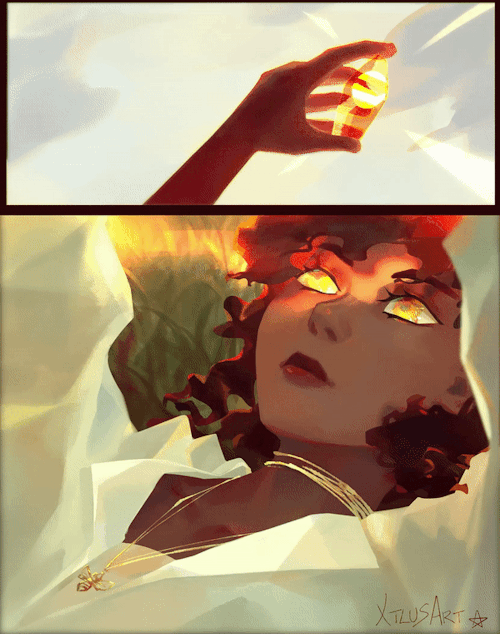
⚜️𝘋𝘪𝘱𝘱𝘦𝘥 𝘪𝘯 𝘧𝘰𝘰𝘭’𝘴 𝘨𝘰𝘭𝘥. 𝘈 𝘧𝘢𝘤𝘢𝘥𝘦 𝘴𝘰 𝘳𝘦𝘢𝘭, 𝘦𝘷𝘦𝘯 𝘺𝘰𝘶’𝘭𝘭 𝘣𝘦𝘨𝘪𝘯 𝘵𝘰 𝘣𝘦𝘭𝘪𝘦𝘷𝘦 𝘪𝘵.⚜️
the fact that I have to heal and grow and get better and do it all by myself because no one else is responsible for that except for me.........





deterena
hey are you a vampire? take this quiz i just spent way too long making and find out the time period in which you were turned
let me guess your worst personality trait based on your taste in movies and tv shows
the idea that all coping mechanisms are valid and completely immune to criticism is honestly one of the worst things on nd/mentally ill tumblr.
just because you’re doing something to cope doesn’t mean it’s not hurting you, or that it isn’t hurting others.
sometimes, coping mechanisms hurt other people, like compulsive lying or constantly expecting your partner to give you reassurance every second of the day. sometimes, your coping mechanisms harm your recovery even though they feel good at the time. sometimes, your coping mechanisms just further entrench you in whatever you’re struggling with.
stop defending unhealthy behavior with the justification of “oh it’s just me coping”. you’re not permanently chained to whatever harmful bullshit you do.



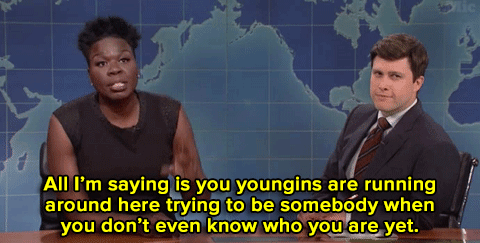



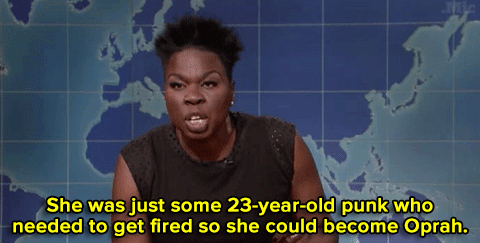








The thing about essay writing is;
You have to argue for everything, but ultimately, you can say whatever you want.
You just have to put it into nice and formal sentences.
So, you know, if you’ve read tons of arguements about who deserves such and such fate in a particular Sophocles tragedy, and all those debates bored the shit out of you because they all turn around the same questions and lead to the same ideas… Well, go ahead and say it.
Say ‘you scholars all bored the shit out of me because your debates were so bloody pointless’
Write ‘the common association of a notion of ‘blame’ to both of the characters’ fates does not serve a very conclusive purpose’
Antigone is heroic, but Creon is human
In the Greek tragedy ‘Antigone’ two characters take the stage as the most interesting and dynamic of the cast. The first is the titular character Antigone, a young woman who strives to bury her brother’s body against the law. The second character is the enactor of said law. This is Creon, the new King of the city and the uncle of Antigone who has venerated one of her dead brothers, but condemned the other to rot outside for eternity. At first glance, both characters are similarly stubborn and inflexible, but upon closer examination of the text, one can find a great deal more of character and personality, especially of Creon, a man seemingly one dimensional in his hard headedness. While Creon possesses several less than admirable qualities, he also possesses many virtues and a great depth of character which makes him the most interesting and most human character of the play.
A great part of what makes Creon the most interesting character comes from his motivations. The primary motivation is his desire to be a great and unquestioned ruler of his city. We can observe this from his very first appearance in the play when he speaks his opening speech of the play on lines 135 to 176. In these he states that he “has contempt for the kind of Governor that is afraid,” and that he will always speak his mind when he sees the ship of State going in the wrong direction. Creon desires his voice to rule sovereignly and unquestioningly. This desire informs all of his other decisions in all other spheres of his life. Even his personal life takes a toll from this, as evidenced by his interactions with his son Haimon and his niece Antigone, who are actually supposed to wed. Due to her breaking the edict though, he spares little time in sentencing Antigone to death; believing that not sentencing her would make him appear weak.
However, this driving desire does not make Creon beneath reason, and in fact provides him many virtues, that we also see in his opening speech. He refuses to have any sort of dealings with the enemies of the State, showing steadfastness and loyalty (lines 155-156). He refuses to be bought by anyone and constantly lectures throughout the play about the evils of money as evidenced when he berates the sentry on lines 249 to 263, displaying remarkable restraint against this kind of temptation. He spares Ismene from death, saying that “No you are right/ I will not kill the one who’s hands are clean”, displaying a desire for fair and accurate judgments (lines 630-631). Creon is not a man that one would consider flexible by any stretch, but this reconsideration from his initial stance at least suggests that he is not incapable of revoking a bad decision of his once he sees the error in his way, which is further evidenced later in the play. He even goes so far as to lift the punishment of death by stoning from Antigone, though perhaps granting her the crueler fate of eternal solitude in a cave.
His second rationale for his actions though, is fear. This one is subtler, and less boldly stated. Creon is uncertain of his ability to rule competently, and therefore acts rashly to solidify his kingship. This fear is hinted at in his opening line when he states that he understands that a King may not expect his subjects’ full loyalty until he has been tested, allowing him a small disclaimer against his fears of not being listened to initially (lines 146-147). His fear also makes him suspicious and unreasonable at times, for his fear does not make him indecisive, but instead stubborn. He is so concerned with appearing strong and unwavering that he persists with bad decisions and only very reluctantly changes his mind. This is evidenced in the scene where he confronts Haimon, who attempts to counsel him against having Antigone slain, begging him to see reason and to revoke the edict. Creon denies his son’s pleas however, accusing Haimon of “having sold out to a woman” and then refuses to entertain any further notions of changing his mind (line 599). The only thing that budges his stubbornness is a prophecy/warning from the prophet Tiresias, which still takes quite a bit of time and further convincing from the choragus to affect him. By then it is too late though, and the audience sees the tragic fate of both Antigone and Haimon.
Despite his hard headedness and unrelenting nature, Creon is still a character that evokes sympathy from the audience. Though I at first disliked him thoroughly, feeling Antigone to be the more righteous character over all, a second reading changed my feelings regarding Creon. While he may not be the hero exactly, it would be unfair to call him a villain either. He is a new ruler who made very human and understandable mistakes. He banned Polyneices, the man who laid siege to his own city, from being buried in an attempt to set right the State, but went against Antigone and his religion in doing so. He attempted to be bold and failed, as humans are wont to due. Similarly, when Antigone defied the edict, he condemned her to death and then imprisonment, fearing the appearance of favoritism or weakness. Both of these he condemned in his very first speech Insecure in his rule, he bulled ahead and insisted on his poor decision. This is not unlike many people I have known today who will continue in the face of all opposition to execute a bad idea. Though of course, the people I know don’t decide whether or not someone lives.
At the end the audience truly feels the most sympathy for Creon. Finally seeing the error of his judgments, he rushes to reverse them, only to be too late. His dialogue on lines 864 to 866 clearly displays his change in heart when he cries, “That is true…it troubles me/ Oh how hard it is to give in! but it is worse/ To risk everything for stubborn pride.” (lines 864-866). After hearing the prophecy and the choragos, he rebukes his stubborn pride, but all too late. His son has died as well as his niece, both going to consummate their marriage in Hell. Creon’s regret and despair is only too poignant as the audience sees Creon ask for mercy in the form of his own death. Despite my initial feelings of dislike towards him, it would have been nearly impossible for me not to feel sympathy for this broken man. I took no satisfaction in seeing his ruin, a sentiment I believe most share.
Now that we have discussed the personality traits of Creon and his mistakes, what might Sophocles have wanted to show us with this character and his story? In my opinion, the tragedy of Creon is meant to show how truly damaging it can be to persist with a poor idea. Creon falls to ruin because he can neither compromise nor listen until very near the end when everything falls to pieces. Creon is also a warning against not taking advice from anyone, as Creon listens to no one until Tiresias scares him into submission by telling him it is the will of the gods that Antigone should be freed from her prison and her brother should be buried. Sophocles is urging the audience to be open to the advice of others and to be more careful in our decisions. Rashly made choices followed up by stubborn persistence lead Creon to ruin and to desire his death.
An alternative meaning for Creon may lie in the fact that in seeking to make his own order, he destroyed it. Creon serves as a warning to those who might seek to overturn the natural order of things so that they might make their own rules. For Creon sought to leave a corpse unburied on the surface of the earth, and to bury a living woman in a cave. If one seeks to overturn the natural order of things, it will only come to tragedy, warns the character of Creon. Man’s rules are not above the rules of nature or the gods, though no god appeared by name in the play and none were seen to interact directly with the characters in the play.
In all, it can be said that Creon has the most depth of character and vies with Antigone for the best character of the play overall. No character has as much personality or as many lines as Creon, and none strike me as quite so human as Creon. While I like and admire Antigone, I cannot relate to her as I now relate to Creon. I have never faced my death, but I have faced swallowing my pride and admitting I was wrong. I have faced my stubbornness and trying to undo my mistakes. Antigone wavered none and is admirable in that respect and was brave and virtuous all throughout. But while that made her heroic, it also isolated her in some regard. And so, it is fair to say that while Antigone is the heroine and the most righteous character of the play, Creon is the most relatable and sympathetic character of the performance.

Amal El-Mohtar and Max Gladstone, This Is How You Lose the Time War
Lady Macbeth's only crime was simply being too much of a girlboss






chaotic academia, pinterest






ur not evil babe ur experiencing a human emotion
i'm literally an artist who doesnt create anything. no i can't explain it to you









“I never look back darling! It distracts from the now.”
- Edna Mode, The Incredibles (2004)

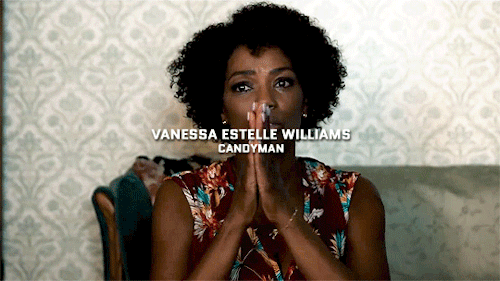

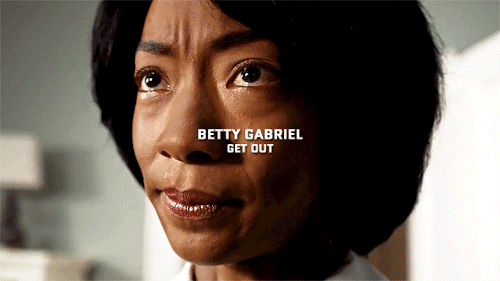
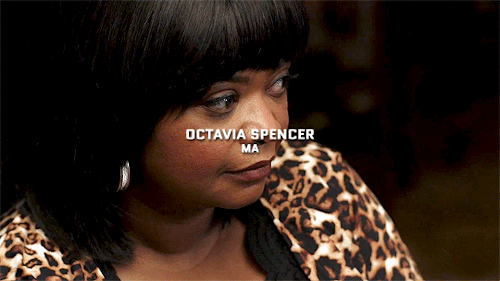


BLACK WOMEN in Horror films.
